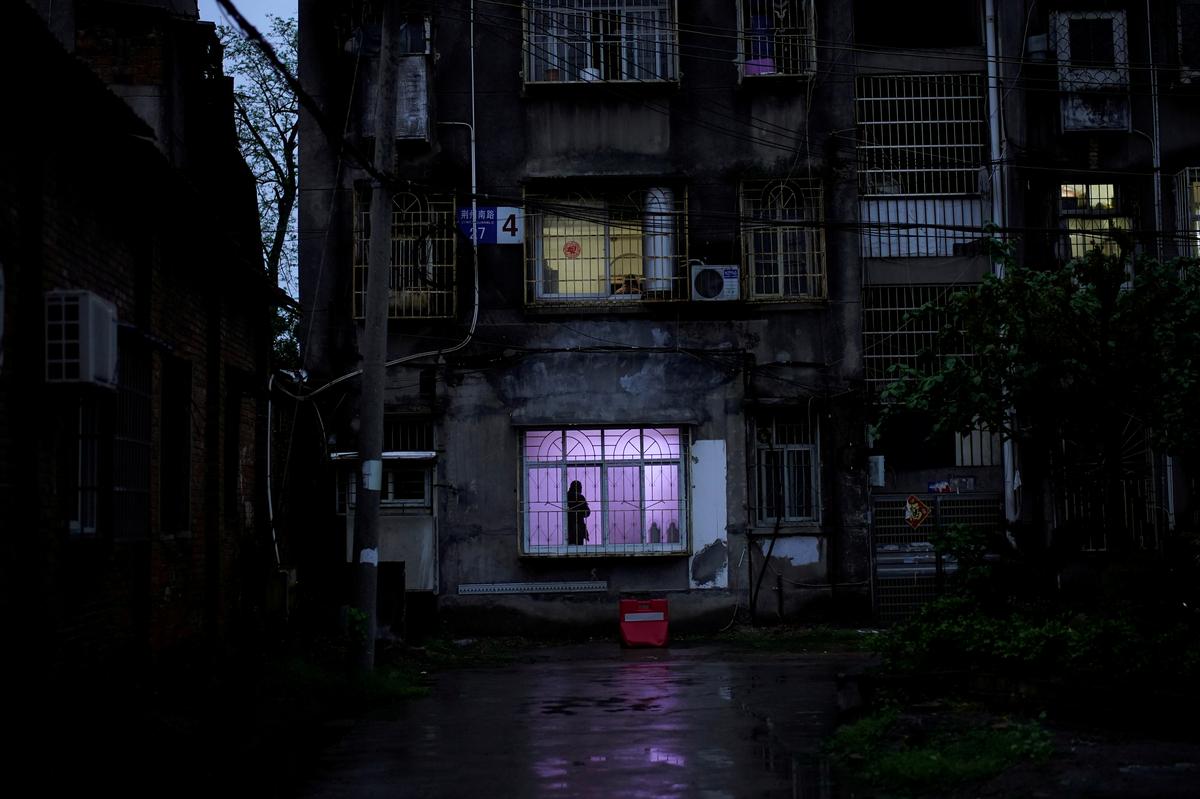JINGZHOU, China (Reuters) – Ten unclaimed urns sit in the crematorium in Jingzhou, a city in central China’s Hubei province hard-hit by coronavirus.
FILE PHOTO: A man stands at a window at a residential community in Jingzhou, after the lockdown was eased in Hubei province, the epicenter of China’s coronavirus disease (COVID-19) outbreak, March 26, 2020. REUTERS/Aly Song/File Photo
Not only are funerals banned across China, in places like Jingzhou bereaved relatives who are stuck in their homes must wait even to retrieve the remains of their loved ones.
The ashes of the dead “are under our care for now because their family members are in quarantine, or they’re away and can’t come back yet,” said the director of the Jingzhou crematorium, who gave only his surname, Sheng, as he was not permitted to speak to the media.
“No farewells, no ceremonies are allowed,” Sheng told Reuters matter-of-factly in his office in the bare, off-white building.
The coronavirus has infected more than half a million people and killed some 25,000 in more than 200 countries. In China, where it began, the virus has upended not only daily life but also how the dead are given a send-off, due to its highly contagious nature.
Whatever the cause of death, China’s bereaved families have not been able to hold funerals since Feb. 1, even as the nation’s outbreak eases, including in

